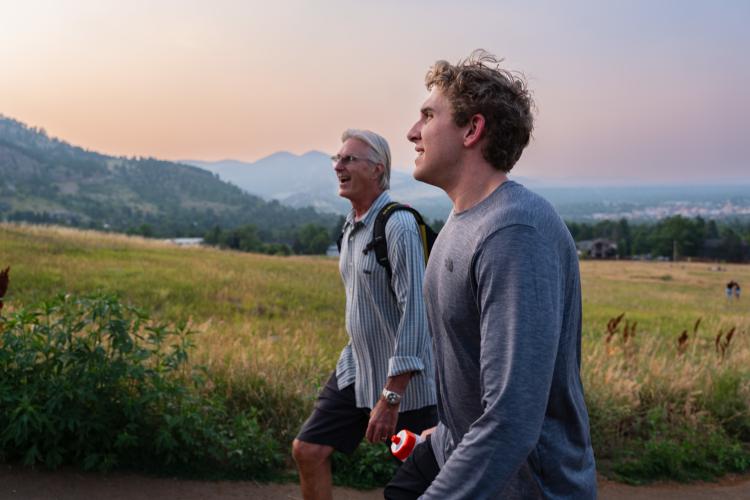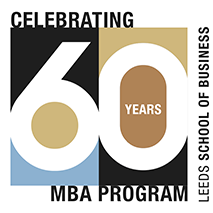Mentoring Gen Z: A New Kind of Mentee
For this generation, it's not about if they're a good fit for a job, but whether the job is a good fit for them.

Martin Moller and Nolan Crowley connect on a hike at Chautauqua Park.
Funded by Gordon (TrMg’77) and Susan Trafton, Leeds Mentoring Programs turned 15 this year and celebrated matching over 9,000 students with mentors. At Leeds, where mentorship is a cornerstone of the student experience, 54% of the 2024 graduating class had participated in at least one mentorship program.
Today’s graduates and students, known as Generation Z (born between 1997 and 2012), want mentors who support their distinctly different views on work from previous generations.
While salary is still the most important factor in deciding on a job, research has shown that Gen Z values salary less than any other generation before it. They’re searching for interesting and meaningful work that gives them autonomy, flexibility and work-life balance at a company aligned with their their values: diversity, sustainability and social impact.
They gravitate toward opportunities where they can build genuine, personal relationships with co-workers and supervisors. Likewise, Gen Z expects more from their mentors than career advice and connections.
“Students are looking for more than professional advice from their mentors; they are looking for a true, authentic relationship. Sometimes they’ll talk about friends, family and mental health for an entire session,” said Sally Forester, associate director of Leeds Mentoring Programs.
These relationships frequently become lifelong, thanks to Forester and her team. They match student and mentor pairs one by one, using a blend of technology and human insights to make personalized matches, ensuring each student finds the right mentor for them.
All three mentoring programs—the Young Alumni, Peer2Peer and Professional Mentorship Programs—have received gold-level accreditation from the International Mentoring Association, recognized as model programs among higher education institutions.
And the programs keep growing with the times, ready to meet the evolving needs of generations to come.
Martin Moller (Mktg, Fin'79) Principal and Founder, LEARN Consulting Services
Professional Mentorship Program (Mentor)
“With the increase in remote work, there are many advantages and challenges ... we discuss issues of communication, earning trust, gaining credibility, networking, getting the support you need and understanding the operations of a firm.”
Matthew Harrison (Fin'26)
Young Alumni Mentors Program (Mentee)
“My conversations with my mentor have not only painted a picture of my soon-to-be professional career but have also helped me envision a fulfilling life that aligns with my values.”
Nolan Crowley (Bus'24), Staffing Consultant at Beacon Hill Technologies
Professional Mentorship Program (Mentee)
“My mentor suggested I make a list of my top six values and post them where I can look at them daily ... to help me internalize the standards I want to live by and move forward with in my new job.”
Kennedey Rapp (InfoAn'19), Senior Consultant, Deloitte
Young Alumni Mentors Program (Mentor)
“I think this group of students is looking for someone to walk beside them rather than a traditional hierarchical mentoring approach. They need to know we are human too, and hopefully, they can learn from our mistakes, and we can learn from theirs.”







